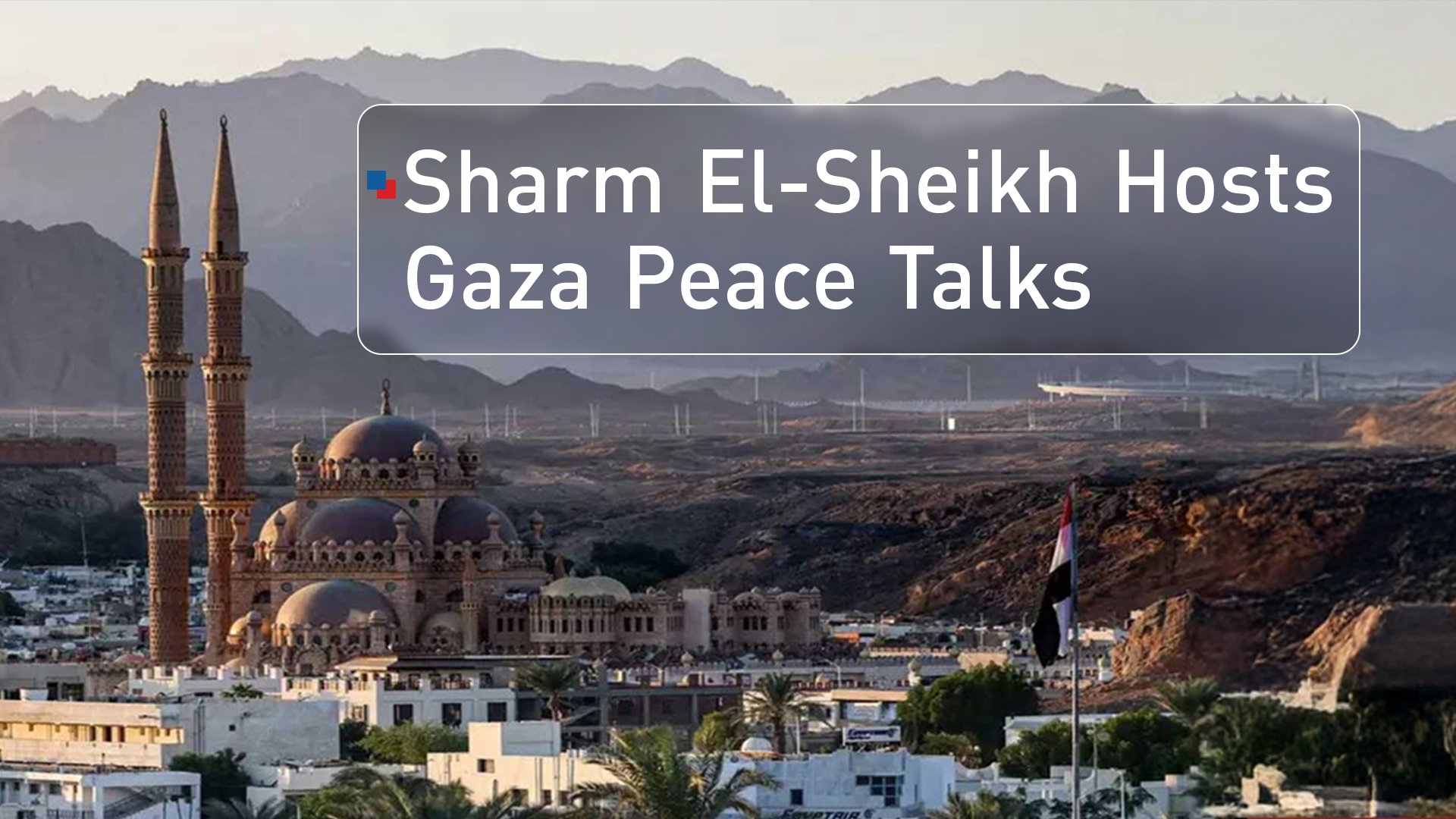Egypt Says First Round of Gaza Ceasefire Talks Ends on ‘Positive’ Note
At the center of these high-stakes discussions stand two contrasting figures — Hamas’s Khalil al-Hayya and Israel’s Ron Dermer — each representing the political and emotional burdens of a protracted war that has reshaped Gaza, Israeli politics, and regional alliances.

ERBIL (Kurdistan24) — The first round of Gaza ceasefire negotiations between Hamas and international mediators concluded late Monday in Egypt “amid a positive atmosphere,” Egyptian state-linked media reported early Tuesday. The talks, held in the Red Sea resort of Sharm El-Sheikh, are expected to continue later in the day, with an Israeli delegation also arriving in the coastal city on Monday.
The negotiations mark the beginning of what could be the most significant diplomatic engagement since the Gaza war erupted two years ago. Both sides are engaged in indirect discussions centered on a proposal by U.S. President Donald Trump for a long-term ceasefire and a large-scale hostage–prisoner exchange.
The framework, quietly circulated in recent weeks, is being viewed as a possible blueprint for ending one of the most devastating conflicts in modern Middle Eastern history.
At the center of these high-stakes discussions stand two contrasting figures — Hamas’s Khalil al-Hayya and Israel’s Ron Dermer — each representing the political and emotional burdens of a protracted war that has reshaped Gaza, Israeli politics, and regional alliances.
U.S. President Donald Trump voiced confidence on Monday that a Gaza peace agreement was within reach, saying Hamas had shown willingness to accept “very important” terms as indirect talks with Israel began in Egypt.
Speaking from the Oval Office, Trump emphasized that while he maintained “red lines” — including conditions on Hamas’s disarmament — the negotiations were progressing well under his administration’s 20-point plan to end the two-year war.
“I think we’re going to have a deal,” he told reporters. “It’s a hard thing for me to say when for years and years they’ve been trying to have a deal… We’re going to have a Gaza deal, I’m pretty sure.”
The president also dismissed reports of tension with Israeli Prime Minister Benjamin Netanyahu, saying the Israeli leader had been “very positive about the deal.”
Khalil al-Hayya: The Survivor-Turned-Negotiator
Khalil al-Hayya, 65, a veteran Hamas official from Gaza’s Shujaiya neighborhood, leads the Palestinian Islamist movement’s delegation. Known among Palestinians as “Abu Ossama,” Hayya has survived three assassination attempts and the loss of several family members, including his eldest son, in Israeli strikes.
His personal tragedy and composure have made him a symbol of endurance among Palestinians.
Before departing for Egypt on Sunday, Hayya appeared publicly for the first time since surviving an Israeli airstrike in Doha last month that killed several of his aides.
In a recorded message, he praised Palestinian resilience while mourning the “loss of thousands” of lives during the ongoing conflict.
Educated in Gaza, Jordan, and Sudan, Hayya has long been regarded as one of Hamas’s more pragmatic figures. He previously served as deputy head of Hamas’s political bureau in Gaza and assumed greater leadership following the death of Yahya Sinwar in October 2024.
Known for his measured tone, Hayya maintains close relations with Islamic Jihad, Hezbollah, and regional powers, including Egypt, Qatar, and Iran.
“Hayya is considered a wise negotiator,” said Gaza-based analyst Yasser Abu Hein. “Losing so many of his relatives has earned him great sympathy, while his composure and conservative temperament make him a trusted figure within the movement.”
Ron Dermer: Netanyahu’s Confidant in a Diplomatic Storm
On the Israeli side, negotiations are led by Ron Dermer — a 54-year-old Miami-born political strategist and one of Prime Minister Benjamin Netanyahu’s closest allies.
A naturalized Israeli and Israel’s ambassador to the United States from 2013 to 2021, Dermer has been described by critics as lacking military experience but by Netanyahu as indispensable in managing the country’s most critical diplomatic relationships.
Dermer’s influence within Netanyahu’s inner circle has often earned him the nickname “de facto foreign minister.” His deep ties to the Trump administration and role in shaping the 2020 Abraham Accords underscore his importance to the Israeli leadership’s broader strategic agenda.
Yet Dermer’s appointment has sparked backlash from families of hostages still held in Gaza, who accuse him of ineffectiveness. Despite such criticism, Dermer remains central to Netanyahu’s plan for what he calls a “new security order” in Gaza — one that prevents Hamas from regaining control while opening the door to reconstruction under international oversight.
Two Years After October 7: A Moment of Reflection
As negotiations are continuing, Israel observed a somber anniversary. Families of victims gathered early Tuesday at the site of the Nova music festival — where hundreds were killed during Hamas’s October 7, 2023 attack — to hold a minute of silence at 6:29 a.m., marking exactly two years since the assault that ignited the ongoing war.
The juxtaposition of renewed diplomacy and collective mourning encapsulates the fragile hope surrounding the Sharm El-Sheikh talks.
For many, the outcome could determine whether Gaza moves toward a sustainable peace or another cycle of violence and retaliation.
With both Khalil al-Hayya and Ron Dermer at the helm, the next rounds of negotiations are set to test not only their political skill but also their ability to bridge years of hostility and distrust — and to answer a question haunting both sides: can this war finally end?